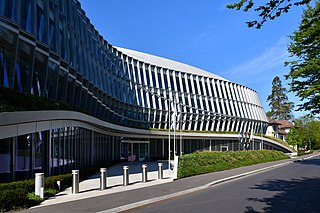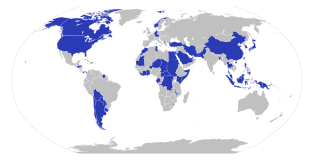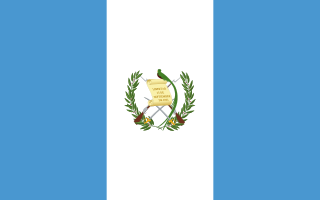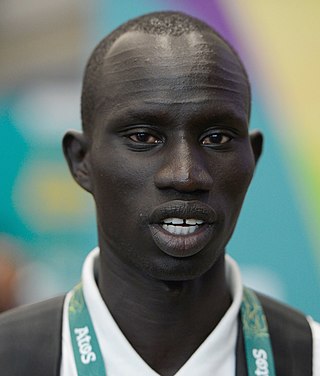
The International Olympic Committee is a non-governmental sports organisation based in Lausanne, Switzerland.

The modern Olympic Games or Olympics are the leading international sporting events featuring summer and winter sports competitions in which thousands of athletes from around the world participate in a variety of competitions. The Olympic Games are considered the world's foremost sports competition with more than 200 teams, representing sovereign states and territories, participating. By default, the Games generally substitute for any world championships during the year in which they take place. The Olympic Games are held every four years. Since 1994, they have alternated between the Summer and Winter Olympics every two years during the four-year Olympiad.

The 1980 Summer Olympics boycott was one part of a number of actions initiated by the United States to protest against the Soviet invasion of Afghanistan. The Soviet Union, which hosted the 1980 Summer Olympics in Moscow, and its satellite states later boycotted the 1984 Summer Olympics in Los Angeles.

The all-time medal table for all Olympic Games from 1896 to 2022, including Summer Olympic Games, Winter Olympic Games, and a combined total of both, is tabulated below. These Olympic medal counts do not include the 1906 Intercalated Games which are no longer recognized by the International Olympic Committee (IOC) as official Games. The IOC itself does not publish all-time tables, and publishes unofficial tables only per single Games. This table was thus compiled by adding up single entries from the IOC database.

The 3rd All-Africa Games – Algiers 1978 was a multi-sport event played from July 13, 1978, to July 28, 1978, in Algiers, Algeria. 45 countries from 49 independent African countries participated in twelve sports.

Russia, referred to by its formal name; the Russian Federation, by the International Olympic Committee, has competed at the modern Olympic Games on many occasions, but as different nations in its history. As the Russian Empire, the nation first competed at the 1900 Games, and returned again in 1908 and 1912. After the Russian revolution in 1917, and the subsequent establishment of the Soviet Union in 1922, it would be thirty years until Russian athletes once again competed at the Olympics, as the Soviet Union at the 1952 Summer Olympics. After the dissolution of the Soviet Union in 1991, Russia competed as part of the Unified Team in 1992, and finally returned once again as Russia at the 1994 Winter Olympics.

The 2024 Summer Olympics, officially the Games of the XXXIII Olympiad and officially branded as Paris 2024, is an upcoming international multi-sport event scheduled to take place from 26 July to 11 August 2024 in France, with some competitions starting on 24 July. Paris is the main host city, with events held at 16 other cities spread across Metropolitan France, plus one subsite in Tahiti—an island within the French overseas country and overseas collectivity of French Polynesia.

Guatemala first participated at the Olympic Games in 1952, but then missed the next three Olympiads. Guatemala has sent athletes to compete in every Summer Olympic Games since 1968. The nation has participated in the Winter Olympic Games once, in 1988.

Sudan first participated at the Olympic Games in 1960, and has sent athletes to compete in most Summer Olympic Games since then. The nation did not attend the 1964 Games in Tokyo, Japan, boycotted the 1976 Summer Olympics along with most African nations, and participated in the American-led boycott of the 1980 Summer Olympics. The nation has never participated in the Winter Olympic Games.

The 2014 Summer Youth Olympics, officially known as the II Summer Youth Olympic Games Chinese: 第二届夏季青年奧林匹克运动会; pinyin: Dì'èrjiè Xiàjì Qīngnián Àolínpǐkè Yùndònghuì, and commonly known as Nanjing 2014, were the second Summer Youth Olympic Games, an international sports, education and cultural festival for teenagers, held from 16 to 28 August 2014 in Nanjing, China. These were the first Youth Olympic Games held in China, making it the first country to host both regular and Youth Olympics following the 2008 Summer Olympics in Beijing.

South Sudan, officially the Republic of South Sudan, is a country in East Africa which is bordered by Ethiopia, Sudan, the Central African Republic, the Democratic Republic of the Congo, Uganda and Kenya including the vast swamp region of the Sudd, formed by the White Nile and known locally as the Bahr al Jabal, meaning "Mountain Sea". It is a landlocked country. The population is nearly 12.7 million people in 2024, and Juba is the capital and largest city. South Sudan gained independence from Sudan on 9 July 2011, making it the most recent sovereign state with widespread recognition as of 2024.

Four independent Olympic Athletes competed at the 2012 Summer Olympics in London, the United Kingdom. These were athletes from the former Netherlands Antilles, and from the newly formed state of South Sudan. This was the third time that athletes had competed as independent participants in the Olympics. None of the athletes won an Olympic medal.

Guor Mading Maker, also known as Guor Marial, is a South Sudanese Olympic track and field athlete. He is a Dinka tribesman.

Athletes have competed as independent Olympians at the Olympic Games for various reasons, including political transition, international sanctions, suspensions of National Olympic Committees, and compassion. Independent athletes have come from North Macedonia, East Timor, South Sudan and Curaçao following geopolitical changes in the years before the Olympics, from the Federal Republic of Yugoslavia as a result of international sanctions, from India and Kuwait due to the suspensions of their National Olympic Committees, and from Russia for mass violations of anti-doping rules.

South Sudan competed in the Olympic Games for the first time at the 2016 Summer Olympics in Rio de Janeiro. The South Sudan National Olympic Committee (NOC) was admitted by the International Olympic Committee (IOC) at the 128th IOC Session on 2 August 2015.

Sudan competed at the 2016 Summer Olympics in Rio de Janeiro, Brazil, from 5 to 21 August 2016. This was the nation's eleventh appearance at the Summer Olympics.

South Sudan competed at the 2016 Summer Olympics in Rio de Janeiro, Brazil, from 5 to 21 August 2016. South Sudan had been an independent nation since 2011, but its civil war had delayed its membership with the International Olympic Committee until 2015, making 2016 its first official appearance at the Olympic Games. The country was offered three universality placements in athletics, as no South Sudanese athletes met the Olympic qualifying standards prior to the Games. Three athletes, two men and one woman, competed in three track and field events, but did not win any medals. The sole woman, Margret Rumat Hassan, was given a spot eight days prior to the start of the Games that had been allotted previously to Mangar Makur Chuot. This change was against the advice of the South Sudan Athletics Federation and was due allegedly to pressure from Samsung, for whom Hassan had appeared in an advertisement. The flagbearer for both the opening and closing ceremony was Guor Marial, a marathon runner who, then unable to represent South Sudan, had competed as an Independent Olympic Athlete in 2012. Five South Sudanese nationals also competed as members of the Refugee Olympic Team.

James Nyang Chiengjiek is a runner originally from South Sudan, but now living and training in Kenya. He was selected by the International Olympic Committee (IOC) to compete for the Refugee Olympic Team (ROT) at the 2016 Summer Olympics. He placed last in his 400 m heat. He was also qualified to the 2020 Tokyo Olympics ROT, and placed last in his 800 m heat after tripping due to a fellow competitor's involuntary touch.

The Refugee Olympic Team is a group made up of independent Olympic participants who are refugees. In March 2016, International Olympic Committee (IOC) President Thomas Bach announced the creation of the Refugee Olympic Athletes Team, as a symbol of hope for all refugees in the world in order to raise global awareness of the scale of the migrant crisis in Europe. In September 2017, the IOC established the Olympic Refugee Foundation to supporting refugees over the long term.














